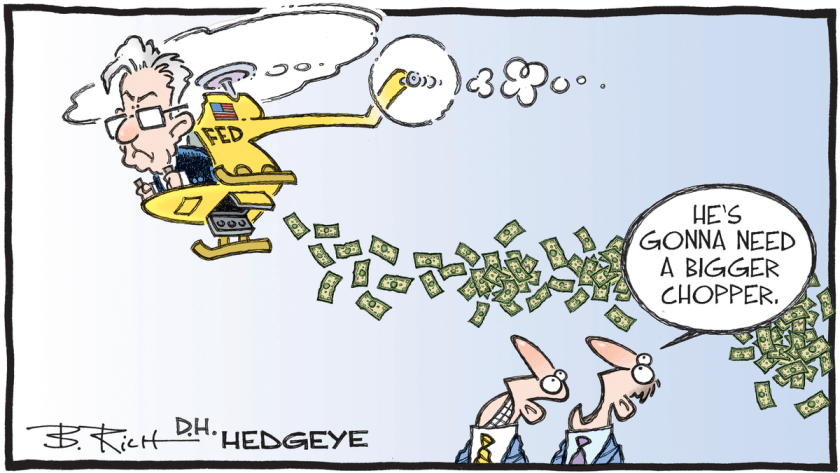Why investors can’t afford to dismiss this macro headwind as trivial
Why? Money and spending. Governments around the world brought forward outer years of spending on a scale that we have never seen before and are unlikely to see again, at least in our lifetime. We also printed more money in 18 months than we did in the prior 10 years, and the result was high inflation and the most protracted burst of global growth that we have ever seen, on record.
This was the ultimate exercise in fiscal dominance. In this wire, we'll explain why what we have just been through matters and what it means for your money.
Why does it matter?
It shows the unfettered power of fiscal dominance if unleashed. We can now work backwards from this illustrative period to understand what this fiscal beast can achieve and to what extent should we calibrate it for less serious crises in future. More importantly, where are we now and to what extent have we reduced our addiction to fiscal dominance?
The answer is, unfortunately, that we continue to use this amazing fiscal drug despite being well and truly out of the economic emergency ward. Again, no surprises here, we see ourselves propagating inflationary budgets the world over and making life difficult for our central banking brethren.
This notion of driving the economic car with one foot on the accelerator and one on the brake has to stop. The unelected officials at our central banks are now more in the firing line than ever as the gap between them and all other areas of government splits ever wider. The voting public is addicted to deficits and like any other addiction when it is taken away from them, the reaction is violent.Knowing the side effects of this addiction, we now see crocodile tears on an unparalleled scale with the government regularly throwing central bankers under the bus, like sport, for their own political expediency and they are winning votes by doing it.

What concerns me is how long central banks can remain truly independent, knowing that they will be cannon fodder for the government if they don’t dance to the tune of the government. Never underestimate the power of self-interest.
Fiscal dominance is real and will remain so. It has huge ramifications for our society and our central banks. So, with rhyming parody “Cost of living relief” can otherwise be re-characterised as “central banking grief” and with that, the merry-go-round of fiscal dominance will be with us until it becomes more popular to buck the trend, an unlikely short-term prospect. It matters because this paradigm shift will underpin higher interest rates for longer and the cutting cycles of central banks will become ever shallower.In other words, we will have higher lows with interest rates and snake our way to an ever higher term structure than what we have seen over the last 15 years albeit punctuated with the standard cutting cycles that are typical of central banks' attempts at finessing the cycle.
So how should investors prepare themselves?
Investors should be ready for this and should side-pocket their old views on the boring asset class of fixed income. Fixed income and more broadly anything with a positive delta to higher rates will undergo an era of best-in-class risk-adjusted returns versus the majority of other major asset classes.
Double-digit returns in the boring asset class could become the norm and not the exception, the degree of difficulty is at its lowest due to the simple fact that yield solves many problems and when you have lots of it coming from a foundation of risk-free interest rates the relative risk that needs to be taken to get these returns is very low compared to what it was in a low to zero interest rate environment.
3 topics

